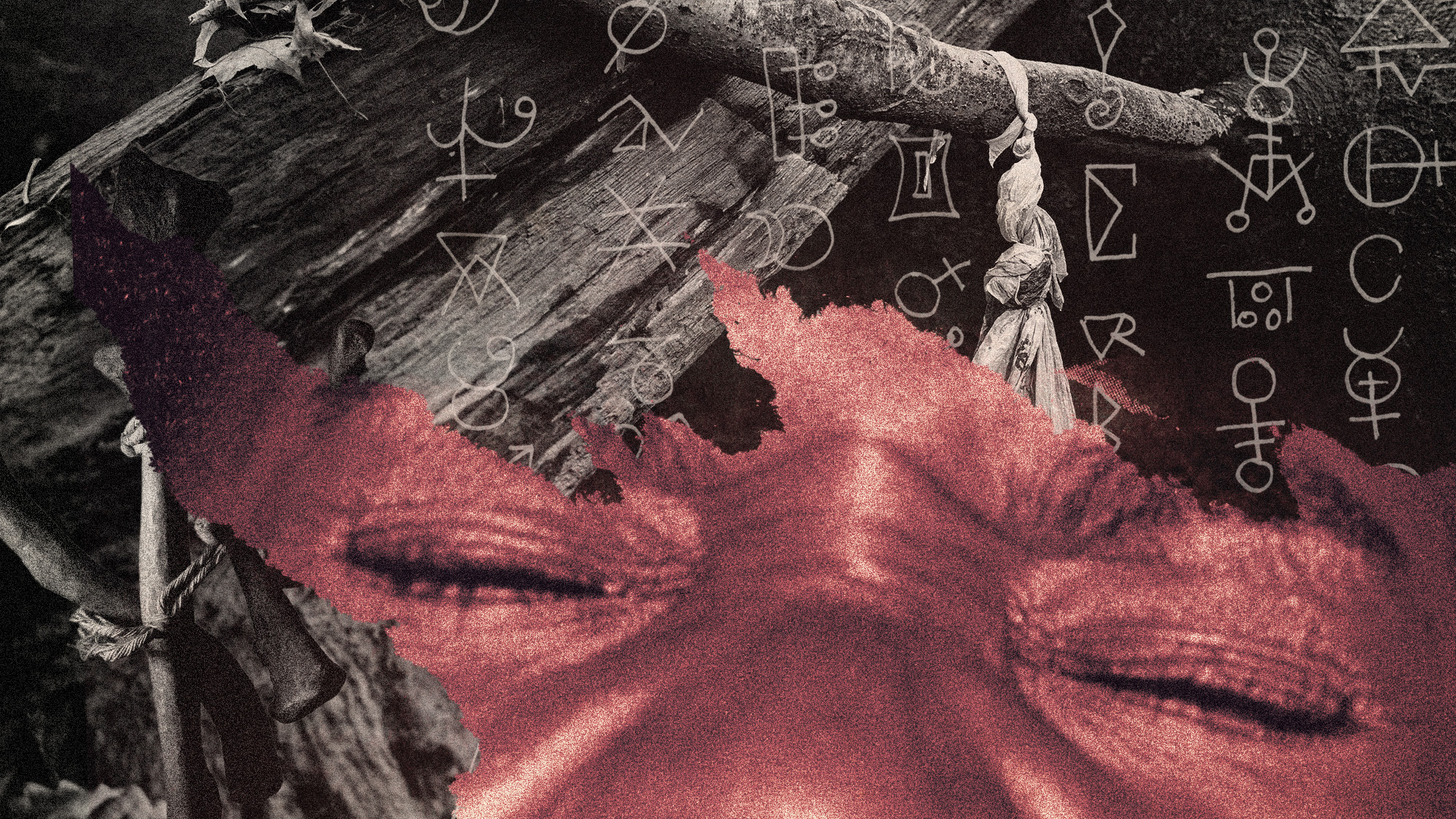Centuries after Salem, witch hunts persist
Men, women and children around the world are still being persecuted in these hunts


A free daily email with the biggest news stories of the day – and the best features from TheWeek.com
You are now subscribed
Your newsletter sign-up was successful
The last proceedings of the Salem Witch Trials in Massachusetts ended in 1693. But 331 years later, religious witch hunts remain a common — if not well-publicized — occurrence in countries around the world. Women are the predominant targets, as they were in historical witch hunts. But men and even children have also been targeted for allegedly practicing witchcraft. And while the practice is often thought of as a relic of the past, data from many developing countries shows that witch hunts are increasing, not disappearing.
Witch hunts remain a "global problem in the 21st century," Deutsche Welle said, and it is such a pervasive issue that Aug. 10 has even been designated "World Day Against Witch Hunts." Thousands of people are accused of practicing witchcraft every year, and many are "persecuted and even killed in organized witch hunts," DW said. These hunts are most prominent in African countries but are also common in parts of Asia, Latin America and the Caribbean.
What is the 'modern' version of a witch hunt?
As was the case in Salem, modern witch hunts involve the trial and persecution of people who have been accused of witchcraft. The hunts can often involve extreme violence, and "media reports suggest a disturbing pattern of mutilation and murder," The New York Times said. This brutality is one of the "ugliest aspects" of witch hunts.
The Week
Escape your echo chamber. Get the facts behind the news, plus analysis from multiple perspectives.

Sign up for The Week's Free Newsletters
From our morning news briefing to a weekly Good News Newsletter, get the best of The Week delivered directly to your inbox.
From our morning news briefing to a weekly Good News Newsletter, get the best of The Week delivered directly to your inbox.
"Victims are often burned alive," the Times said, referencing what has been reported in the majority of instances. However, those accused of witchcraft can also be "beaten to death" or they may be "stoned or beheaded, as has been reported in Indonesia and sub-Saharan Africa." In many communities, it is "chiefly young men who take on the role of witch hunters, suggesting that they may see it as a way to earn prestige by cleansing undesirables," said the Times — though as previously mentioned, men may also be accused of witchcraft themselves.
Why do these witch hunts occur?
In many countries in the developing world, witchcraft is "associated with the power of nature, such as medicinal and poisonous plants, or rains and floods," and "people accused of witchcraft are said to be able to control natural events such as storms or droughts," said National Geographic. As a result, "witchcraft is sometimes seen as the cause" of illnesses, particularly in "places with poor medical care or few educational opportunities."
One notable example occurs in Zambia, where the World Health Organization estimates nearly 25% of pregnant women are infected with HIV/AIDS. This leads to men, women and children being "accused of spreading HIV/AIDS through witchcraft," National Geographic said. Witch hunters are then hired to "kill those accused of witchcraft with a so-called poisonous 'tea.'" Similar cases of witch hunts against illnesses have been seen in other countries, including Papua New Guinea.
Beyond this, some people may become the victims of witch hunts simply for looking different. In Tanzania, "albino people are in danger of being killed for their skin and body parts" because some people "believe the arms, legs, skin, and hair of albinos have special magic in them," National Geographic said.
A free daily email with the biggest news stories of the day – and the best features from TheWeek.com
But these causes don't act alone, as "multiple roots entwine to produce a witch hunt," Scientific American said. These roots can include a "belief in sorcery, a patriarchal society, sudden and mysterious deaths resulting from a paucity of health care, inaccessible justice systems that give impunity to attackers, a triggering disaster" and more — all coming together to result in a fear of witchcraft, the outlet added. Ultimately, what witch hunts all have in common "across time, space and culture, is a backdrop of social and economic dislocation."
What is being done about witch hunts?
Action from the authorities is "effective in stopping witch hunts," National Geographic said. And in South Africa, there has been an "educational campaign in schools and workplaces about science, medicine and HIV/AIDS" to try and deter witch hunts.
Beyond this, governments "have moved to recognize and make amends for their historical involvement in witch-hunting," Brendan C. Walsh, an academic at Australia's University of Queensland, said at The Conversation. Advocates for "witchcraft exoneration projects argue that state pardons are more important than ever, not least because they can help address ongoing witchcraft-related violence" by educating people about the practice. Despite this, an uphill battle remains, and "every year more than 1,000 people around the world" are killed due to accusations of witchcraft, said Scientific American.
Justin Klawans has worked as a staff writer at The Week since 2022. He began his career covering local news before joining Newsweek as a breaking news reporter, where he wrote about politics, national and global affairs, business, crime, sports, film, television and other news. Justin has also freelanced for outlets including Collider and United Press International.
-
 How the FCC’s ‘equal time’ rule works
How the FCC’s ‘equal time’ rule worksIn the Spotlight The law is at the heart of the Colbert-CBS conflict
-
 What is the endgame in the DHS shutdown?
What is the endgame in the DHS shutdown?Today’s Big Question Democrats want to rein in ICE’s immigration crackdown
-
 ‘Poor time management isn’t just an inconvenience’
‘Poor time management isn’t just an inconvenience’Instant Opinion Opinion, comment and editorials of the day
-
 Microdramas are booming
Microdramas are boomingUnder the radar Scroll to watch a whole movie
-
 The 8 best superhero movies of all time
The 8 best superhero movies of all timethe week recommends A genre that now dominates studio filmmaking once struggled to get anyone to take it seriously
-
 Caribbean resorts that call for serious rest and relaxation
Caribbean resorts that call for serious rest and relaxationThe Week Recommends Serenity is a flight away
-
 Josh D’Amaro: the theme park guru taking over Disney
Josh D’Amaro: the theme park guru taking over DisneyIn the Spotlight D’Amaro has worked for the Mouse House for 27 years
-
 Rock Villa, Bequia: a hidden villa on an island epitomising Caribbean bliss
Rock Villa, Bequia: a hidden villa on an island epitomising Caribbean blissThe Week Recommends This gorgeous property is the perfect setting to do absolutely nothing – and that’s the best part
-
 The best fan fiction that went mainstream
The best fan fiction that went mainstreamThe Week Recommends Fan fiction websites are a treasure trove of future darlings of publishing
-
 Dive right into these 8 underwater adventures
Dive right into these 8 underwater adventuresThe Week Recommends It’s time to make a splash
-
 Golden Globes affirm ‘One Battle,’ boost ‘Hamnet’
Golden Globes affirm ‘One Battle,’ boost ‘Hamnet’Speed Read Comedian Nikki Glaser hosted the ceremony
